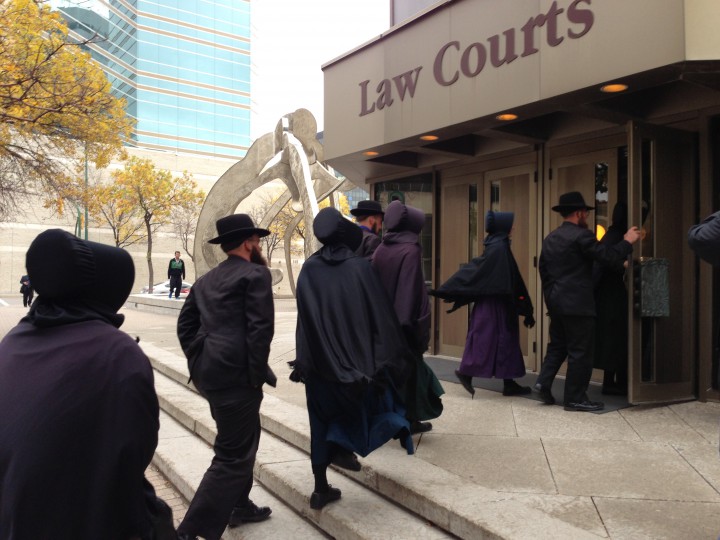WINNIPEG – An orthodox Mennonite community in Manitoba that had almost all of its children seized eight months ago is close to getting them back now that child abuse charges against some of the sect’s members have been stayed.

Most of the criminal charges were dropped last week, although the Crown is still pursuing charges against four individuals in the community.
Jay Rodgers, CEO of Manitoba’s General Child and Family Authority, said that removes a huge hurdle that had prevented 36 children from going home.
“With the stay of proceedings … I think you’re going to see, hopefully, the return of kids over the next few months,” Rodgers said.
More than 40 children were seized from the community last June after RCMP arrested 13 people on various assault charges, including allegations the children were struck with cattle prods, whips and leather straps.
The identities of the children are protected under a publication ban. The Canadian Press is not naming any of the accused or the small community where they live.
Six children have been returned to their parents and another five are expected to return imminently, Rodgers said.

Get daily National news
The length of time they have spent in foster care has frustrated many who are advocating and working with the community. Some children have celebrated birthdays, been weaned from their mothers and been exposed to modern technology. Some are now speaking English instead of the German dialect they would have learned at home.
“The pace has been incredibly slow,” said lawyer Paul Walsh, who represents 10 parents. “The system hasn’t devoted sufficient resources to move quickly at all. I find that whole business in terms of the time totally distressing.”
The parents have maintained they aren’t guilty of child abuse. They have said their children were apprehended because a few of the older children in the community complained to police because they “didn’t like their lifestyle.”
Old-order Mennonites typically shun modern conveniences, including electricity and cars, and adhere strictly to Biblical teachings. While most believe in corporal punishment, those who know the community say they are inherently non-violent.
Parents have been stoic on the rare occasion they have spoken publicly, saying they are working with Child and Family Services to get their children back.
The parents have agreed to guidelines spelled out by child welfare agents which say they must not “punch, pull hair, sit on, slap faces, pull/pinch ears, burn, withhold food, or have children stand or sit for extended periods of time as punishment/correction.”
“It was the path of least resistance,” Walsh said. “(They) will jump whatever hurdle is placed before them if the result at the end is to recover their children.
“They’re not doing all that well at all. I wish it were otherwise but it isn’t. It’s just moving far too slow.”
Those close to the community say that even once the children are back, it will take a long time to recover.
Peter Rempel, the former head of the Mennonite Central Committee of Manitoba who has been working with the community, said tensions that existed between parents and their children when they were taken into care still remain. Some of the young people may have formed strong attachments to their foster parents and will have trouble returning to the traditional life in their community.
“The children will have been exposed to a whole range of amenities and technology that they are not used to at home and which they won’t have at home — things like hydro, Internet, computers, television and telephone,” Rempel said.
“There will be some gentle and long-term work needed to reconnect them to their families.”







Comments